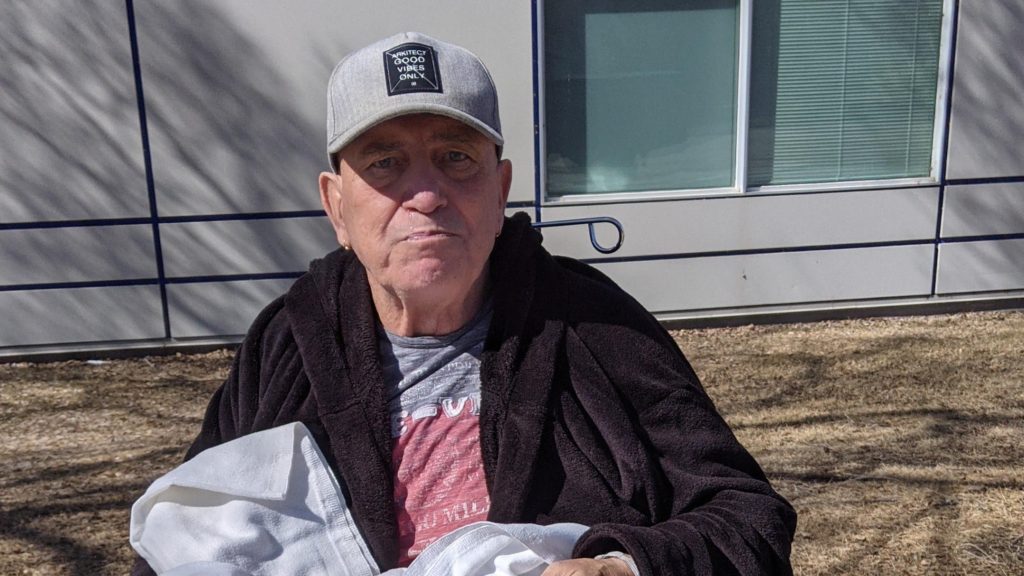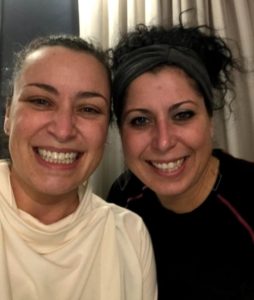

Sixty-seven-year-old retired teacher Richard—a Canadian citizen—moved to Puerto Vallarta, Mexico almost a decade ago to enjoy resort-style living. We sat down with Jackie, one of Richard’s two adult daughters, who explained how her father’s medical emergency in Mexico turned into a nightmare for their entire family.
Jackie said, “At one point, I was so helpless, I actually Googled the search term: “Dad had a stroke in Mexico.”
Our estate planning attorneys at Voorhees & Ratzlaff will also offer some key tips on how to prepare for travel abroad to ensure that in the event of a medical emergency, your family or friends will have the information needed to get you help as soon as possible.
Voorhees & Ratzlaff: Tell us a little bit about your father and his move to Mexico.
Jackie: Dad moved to Mexico about eight years ago. He decided to become a citizen and live there full-time four years ago. He is a retired teacher and enjoyed the social aspects of living in Puerto Vallarta.
V&R: What health emergency did your father suffer while living in Mexico and how were you notified?
Jackie: He suffered a stroke subsequent to his Covid infection. He was able to call my sister to say he wasn’t feeling well but didn’t want to go to the hospital. After two days of him calling but being unable to speak or communicate my sister finally convinced him that he needed to go to the hospital. His roommate was able to call for an ambulance. My sister had to pay $7,000 CAD prior to him being admitted
V&R: What was it like trying to discuss treatment options/plans for your father with the hospital?
Jackie: It was very difficult. We had no personal health directive and no power of attorney. Dad’s speech was limited to yes or no answers; he was also able to say the word “home” which we took to understand that he wanted to return to Canada. The doctors were not very forthcoming about what had happened and what treatment they were providing. After three days of care, we got a call that he was being discharged from the hospital and returned to his apartment with no support in place.
V&R: Did you know whether or not your father had any healthcare directives? Did you know the basics – like where his passport was, where he lived in Mexico, as well as whether he had insurance policies, a power of attorney, etc.?
Jackie: We had no access to any of this information. So due to the fact that he suffered such a debilitating stroke that severely impacted his speech we really couldn’t know anything. My sister had an old, half-completed, unsigned will in a folder. We contacted the lawyer’s office where he said he had had it done, but there was no power of attorney or any healthcare directives granted to us. We were quite confident that he had a current passport but we had no idea if he even had health insurance in place.
V&R: How did you navigate trying to get your father extradited to Canada? Tell us a little bit about the process, you and your family underwent to get him back to his native country.
Jackie: It was unbelievably challenging. We first looked into medical transport but without knowing if he had any health insurance in place, we could not take on the cost. The doctor had cleared him for travel by airplane but as he could not use the bathroom without help, the airlines would not let him travel alone. We needed to go get him. This became especially challenging as this was the week Canada was stopping all flights to Mexico due to the pandemic.
Fortunately, a family friend volunteered to go to Mexico to bring him back. The logistics were complicated as we had to navigate Covid tests, booking flights without any of Dad’s info and we weren’t really sure if he would have his passport or any identification once his friend got there. It was an incredibly difficult trip for him on the way home. He was in an extreme amount of pain during the flights as his mobility is so poor that he was unable to get comfortable. He was also developing bedsores after two weeks of improper care.
V&R: Was the care he received in Mexico adequate?
Jackie: We believe he was cared for very poorly in Mexico almost to the point where he was wilfully neglected. He was only in the hospital for three days. No scans were done. The integrity of his skin was not maintained. When he was admitted to hospital in Canada he was diagnosed with several pulmonary embolisms (lung clots). He was coughing up blood in Mexico after the stroke and a doctor saw him at the apartment and no follow-up care was provided or recommended. I feel strongly that he was sent home to die. He was in terrible shape when he got to Canada.

Eerie pandemic travel! Jackie flew to Calgary to meet her sister and father at the airport.
V&R: How did his care improve once he was back in Canada?
Jackie: Night and day. We called 911 the minute he got off the plane. EMS was amazing; they treated it as an emergency. He was taken and admitted to the hospital. Scans were done, blood work… every test under the sun. The doctors called us to discuss end-of-life interventions and we had to guess what he would have wanted. We felt that he would not want extraordinary measures taken, but we had never discussed this, and of course, we had no legal documents to help us with this decision.
He is still in hospital receiving round-the-clock care and specialized therapy. He’s made great improvements in his speech. I feel like if he would have had proper care immediately he would have been so much closer to making a full recovery. As it is he will be forever disabled and require a high level of care for the rest of his life. He is 67.

Sisters reunited! Jackie and her sister Vicki reunite to welcome their dad home to Canada.
V&R: What would you say to anyone planning a trip alone or a move outside of their country?
Jackie: Don’t think about leaving without all proper paperwork in place. A proper will, power of attorney, healthcare directives… and even make copies of your passport for your family. My dad did not have any health insurance in place. Make sure you have health insurance and that it will cover medical transport. Getting back to Canada sooner would have made all the difference in his recovery.
Make sure the person who would be responsible for your care knows how to access all of this information. Think very carefully about moving to a different country alone. Plan for the worst-case scenarios and please think about the people who will be left to care for you and make decisions for your health. This can be an incredible burden for your loved ones.
V&R’s Top Tips: How to Prepare for Travel Abroad
We want our loved ones to be independent and travel during their retirement years. However, this situation sheds light on the reality of any person traveling to another country or even another state for that matter. Unexpected circumstances can arise for travelers of any age.
Before you travel:
- Ensure that everyone has an advanced healthcare directive and power of attorney in place.
- Designate a trusted friend or family member to have the following information:
- Your travel information – where you are going, duration and location of where you intend to stay, and the nearest hospital
- Estate planning information
- Name and phone number of estate planning attorney
- Copies of important documents such as passport, driver’s license, and insurance information
- Travel insurance information if applicable
- Medical information – name contact information of your primary doctor, as well as any existing medical conditions or allergies you may have
International travelers and “snowbirds” should also consider researching the state or country’s laws where they intend on being for an extended amount of time to ensure their documents will function in that country or state. Even better, consider getting an advanced health care directive and power of attorney specifically for your place of domicile.
It is so important to be prepared and ensure that when you are traveling you are protected from the unexpected. Do you have upcoming travel planned? Call us at (909) 334-1425. We can quickly and seamlessly assist you in preparing your advanced healthcare directives, estate planning, power of attorney, and much more.
